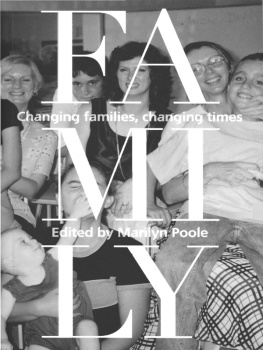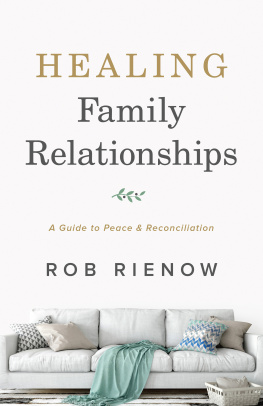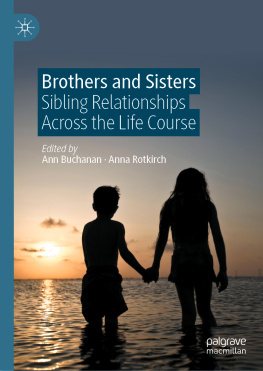
In this important and innovative work Cara Jardine extends and deepens our understanding of the consequences of imprisonment. Prisons disrupt lives, not only of those whom we punish by sending there, but of families, friends and sometimes whole communities. Jardines meticulous and empathic research illuminates these wider impacts, and in so doing subtly urges a searching reappraisal of the social uses of the prison.
Richard Sparks, Professor of Criminology, University of Edinburgh, UK
Families, Imprisonment and Legitimacy is an intimate portrayal of the experiences of families who are affected by incarceration and offers sound remedies for rolling back the reach of the penal system in Scotland and abroad. Using the voices of the imprisoned and their relatives, Jardines qualitative analysis reveals the gendered costs of imprisonment as well as how incarceration intensifies marginalization and poverty for families interfacing with the criminal justice system. Her research demonstrates that while there is no singular type of family impacted by incarceration mass imprisonment has dramatic consequences for us all.
Joyce A. Arditti, PhD, Professor of Human Development and Family Science, Virginia Tech, and author of Parental Incarceration: A Family Perspective
Families, Imprisonment and Legitimacy
This book examines what it means to be a family within the restrictive, disruptive, and often distressing context of imprisonment. Drawing on original qualitative data, it looks beyond traditional models of the family to examine the question of which relationships matter to individuals affected by imprisonment, and demonstrates how family relationships are actively constructed and maintained through family practices and displays such as visits, shared experiences and continuing family memories and traditions. It sheds new light not only on the true extent of who is impacted by the imposition of a prison sentence, but also the barriers to family life that these individuals encounter throughout its duration.
This book also contributes to our understanding of wider issues such as poverty and social marginalisation, the role of family relationships on desistance from crime, and legitimacy. It argues that the act of supporting an individual in custody can bring families into regular contact with the criminal justice system in ways that can be both distressing and problematic, and therefore contends that the prison system should minimise the damage caused by imprisonment not only to family relationships, but also to the perceived legitimacy of the criminal justice system.
Generating new conceptual insights into the harms of imprisonment and how perceptions of legitimacy and fairness are shaped by the criminal justice system, this book will be of much interest to students of criminology and sociology engaged in studies of criminal justice, prisons, gender, social work, and punishment. It will also be of interest to policy makers, penal-reformers, and activists.
Cara Jardine joined the School of Social Work and Social Policy at the University of Strathclyde in 2017, after completing her doctorate at the University of Edinburgh. Her research interests include imprisonment, punishment, inequalities, gender, and poverty, and she has a particular interest in qualitative and feminist research methods. Cara was recently awarded a Leverhulme Early Career fellowship to develop new research into peoples experiences of community from within prison, the permeability of the prison wall, and the resulting implications for citizenship, legitimacy, and reintegration.
Routledge Studies in Crime, Justice and the Family
Edited by Rachel Condry
The University of Oxford, UK
This series is the first series of its kind for Criminology. It offers a space to capture work on a range of topics that share the common theme of the relationship between crime, justice and the family, and aims to interrogate common-sense understandings of this relationship to explore just who is affected by crime and how they are affected, whether as victims of crime within the family, as secondary victims, or as parents, children, spouses, or other kin of offenders.
Families, Imprisonment and Legitimacy
The Cost of Custodial Penalties
Cara Jardine
First published 2020
by Routledge
2 Park Square, Milton Park, Abingdon, Oxon OX14 4RN
and by Routledge
52 Vanderbilt Avenue, New York, NY 10017
Routledge is an imprint of the Taylor & Francis Group, an informa business
2020 Cara Jardine
The right of Cara Jardine to be identified as author of this work has been asserted by her in accordance with sections 77 and 78 of the Copyright, Designs and Patents Act 1988.
All rights reserved. No part of this book may be reprinted or reproduced or utilised in any form or by any electronic, mechanical, or other means, now known or hereafter invented, including photocopying and recording, or in any information storage or retrieval system, without permission in writing from the publishers.
Trademark notice: Product or corporate names may be trademarks or registered trademarks, and are used only for identification and explanation without intent to infringe.
British Library Cataloguing-in-Publication Data
A catalogue record for this book is available from the British Library
Library of Congress Cataloging-in-Publication Data
Names: Jardine, Cara, 1984 author.
Title: Families, imprisonment and legitimacy : the cost of custodial penalties /
Cara Jardine.
Description: Abingdon, Oxon ; New York, NY : Routledge, 2020. | Includes
bibliographical references and index.
Identifiers: LCCN 2019028177 (print) | LCCN 2019028178 (ebook) |
ISBN 9781138329348 (hardback) | ISBN 9780429448232 (ebook)
Subjects: LCSH: Prisoners families. | PrisonersFamily relationships. |
ImprisonmentSocial aspects.
Classification: LCC HV8885 .J37 2019 (print) | LCC HV8885 (ebook) |
DDC 362.82/95dc23
LC record available at https://lccn.loc.gov/2019028177
LC ebook record available at https://lccn.loc.gov/2019028178
ISBN: 978-1-138-32934-8 (hbk)
ISBN: 978-0-429-44823-2 (ebk)
Typeset in Garamond
by Apex CoVantage, LLC
To my family you all know who you are.
There are many people to whom I am indebted to for their help and support over the course of this research. First and foremost, I wish to thank all the men, women, and children who took the time to participate in the project; your stories are the foundations of this book, and I hope I have done them justice.
I am grateful to everyone who helped in the process of the data collection across both research sites and apologetic for any additional burdens this caused. Particular thanks must go to Jim Carnie, Nicola Ceesay, Gail Hughes, and Kerry Watson for going above and beyond what could reasonably be expected by any PhD researcher in field.
I also wish to thank Anna Souhami and Lesley McAra, who were critical, encouraging, and unfailingly generous with their time throughout the project. Thank you also to the wider department, and especially the vibrant PhD and ECR community at the University of Edinburgh.
A particular thanks must go to Richard Sparks and Rachel Condry, who not only made my viva an enjoyable one, but whose perceptive questioning has been indispensable in developing the arguments presented here. Thank you also to Prisoners Families Research Group, who have provided a critical and supportive space for thinking these issues through.







